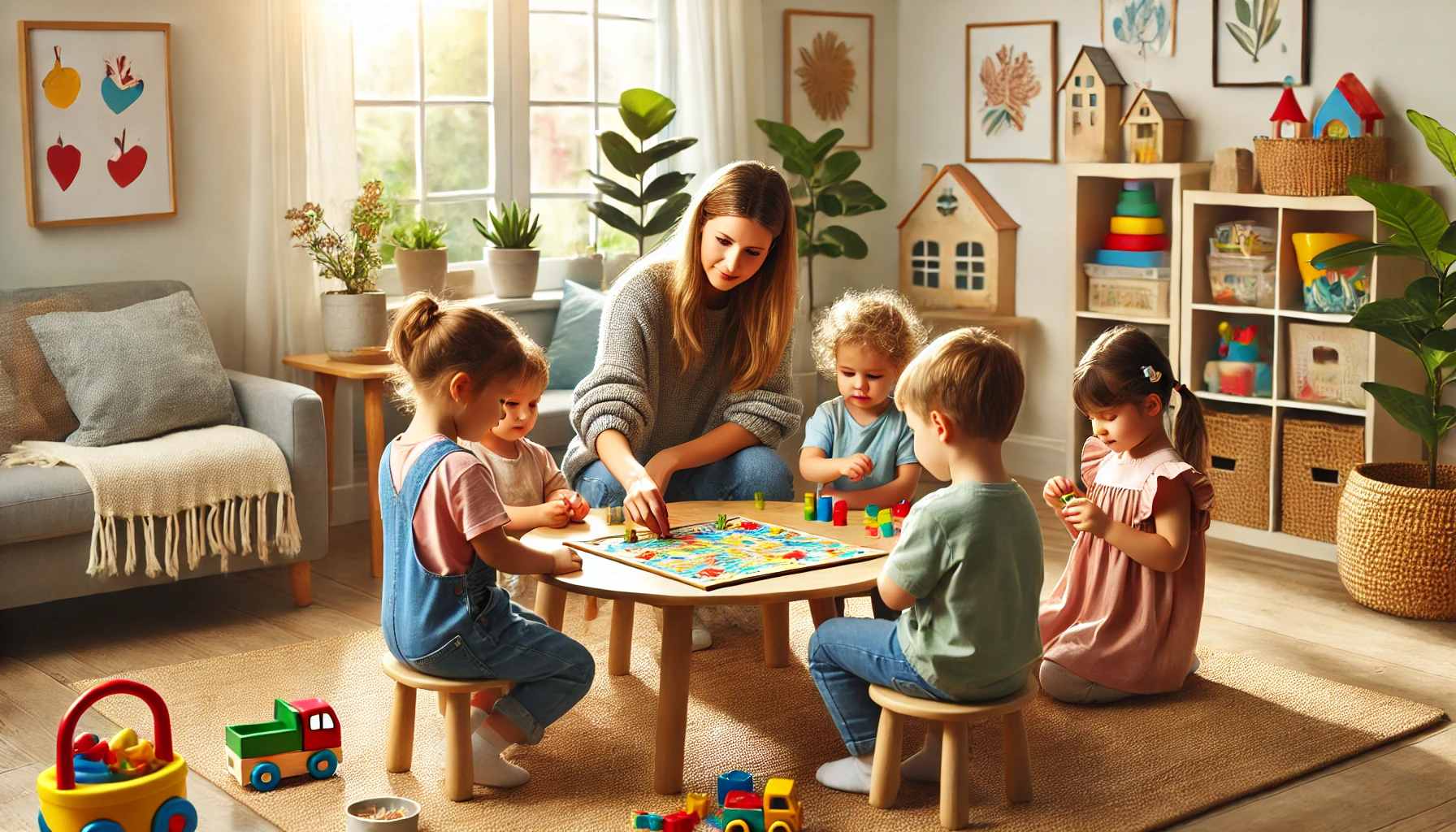How to Teach Young Children About Sharing and Cooperation
Teaching young children about sharing and cooperation helps them build strong relationships, develop empathy, and work well with others. When kids learn to take turns, collaborate, and consider others’ feelings, they develop essential social skills for school and life. Parents can encourage sharing and teamwork through play, storytelling, and positive reinforcement. In this article, we’ll explore practical ways to help children understand and practice sharing and cooperation.
Why Teaching Sharing and Cooperation is Important
- Builds empathy – Helps children recognize and care about others’ feelings.
- Encourages teamwork – Teaches kids how to work and play together peacefully.
- Promotes fairness – Helps children understand the importance of taking turns.
- Reduces conflicts – Gives kids tools to resolve disagreements in a positive way.
- Prepares for school and group activities – Encourages successful interactions in social settings.
1. Explain Why Sharing is Important
Helping children understand the benefits of sharing encourages cooperation.
Activity Idea:
- Use simple phrases: “Sharing helps everyone have fun together.”
- Give relatable examples: “If we share our toys, we can play more games.”
- Ask questions like, “How do you feel when someone shares with you?”
What Kids Learn:
- That sharing makes playtime more enjoyable.
- How taking turns helps everyone feel included.
- The importance of fairness in social interactions.
2. Play Games That Encourage Turn-Taking
Interactive games help children practice patience and cooperation.
Activity Idea:
- Play board games, where children take turns rolling dice.
- Try a “Pass the Ball” game, where kids pass an object and wait for their turn.
- Set up a team-building challenge, like building a tower together.
What Kids Learn:
- That waiting their turn is part of fair play.
- How teamwork helps accomplish a goal.
- The importance of respecting others’ turns.
3. Use Praise and Encouragement to Reinforce Sharing
Positive reinforcement encourages children to share willingly.
Activity Idea:
- Say, “I love how you shared your crayons with your friend!”
- Use a “Sharing Chart”, where kids earn stickers for acts of kindness.
- Ask, “How did it feel when you shared your toy?” to reinforce self-awareness.
What Kids Learn:
- That sharing is appreciated and rewarding.
- How kindness makes others happy.
- The motivation to continue sharing.
4. Read Books About Sharing and Cooperation
Stories help children see the benefits of sharing through relatable characters.
Activity Idea:
- Read The Rainbow Fish by Marcus Pfister (about the joy of sharing).
- Discuss how the characters felt before and after sharing.
- Encourage kids to share a time when they practiced cooperation.
What Kids Learn:
- That sharing strengthens friendships.
- How cooperation leads to happiness.
- The importance of including others.
5. Teach Problem-Solving for Sharing Conflicts
Helping children resolve conflicts peacefully improves cooperation.
Activity Idea:
- Role-play situations: “What can you do if both of you want the same toy?”
- Teach kids to say, “Can we take turns?” or “Let’s play together!”
- Encourage compromise by finding creative solutions together.
What Kids Learn:
- That problems can be solved without fighting.
- How to express their needs in a kind way.
- The importance of working together to find solutions.
6. Encourage Kids to Share Beyond Toys
Teaching kids that sharing applies to more than just objects fosters generosity.
Activity Idea:
- Encourage kids to share ideas, snacks, or responsibilities (e.g., setting the table together).
- Have children take turns choosing a bedtime story for everyone to enjoy.
- Praise acts of generosity: “That was kind of you to share your cookie with your sibling.”
What Kids Learn:
- That sharing includes actions, not just things.
- How generosity strengthens relationships.
- The value of considering others’ happiness.
7. Model Sharing and Cooperation in Everyday Life
Children learn by watching how adults interact and collaborate.
Activity Idea:
- Share food at mealtime: “Would you like to try some of my fruit?”
- Show cooperation by working together on household tasks.
- Use kind words like “Let’s do this together” to emphasize teamwork.
What Kids Learn:
- That sharing and cooperation are everyday habits.
- How teamwork makes things easier and more enjoyable.
- The importance of helping others in daily life.
8. Be Patient as They Learn
Teaching sharing takes time, so consistent guidance and encouragement are key.
Activity Idea:
- If a child struggles with sharing, gently remind them: “It’s okay to take turns. You’ll get it back soon.”
- Offer praise when they make progress: “I saw how you let your friend play with your truck. That was so kind!”
- Reinforce that learning to share is a process, and mistakes are okay.
What Kids Learn:
- That sharing is a skill that takes practice.
- How small improvements lead to big successes.
- The importance of patience in developing good habits.
Final Thoughts
Teaching young children about sharing and cooperation helps them develop empathy, patience, and teamwork. By modeling generosity, using fun activities, and reinforcing positive behavior, parents can guide children toward becoming kind and cooperative individuals who enjoy playing and working together.
